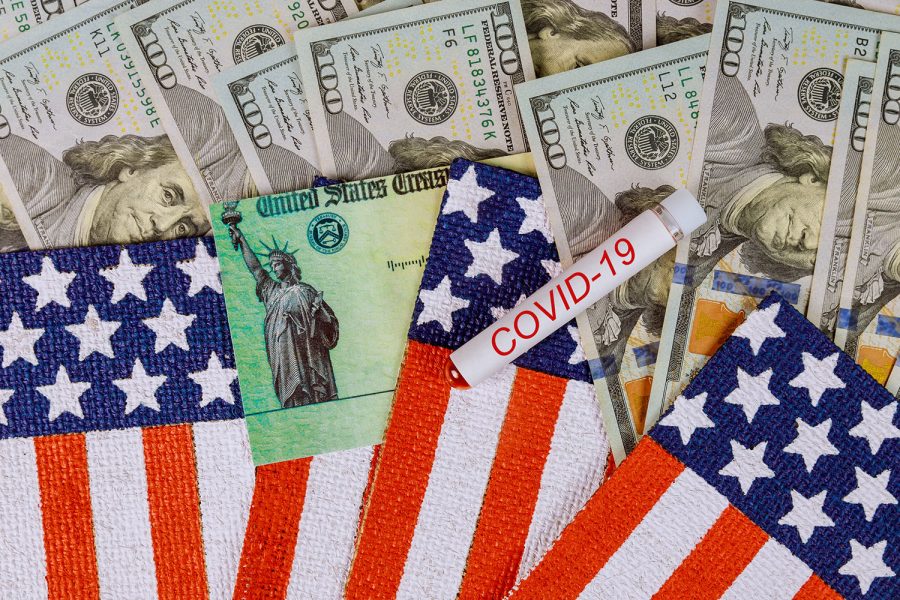Opinion | We need a base income now
It’s not that complicated — direct, recurring cash payments to all Americans is the only path forward to slow the spread of the virus, rebuild the economy, and keep people’s livelihoods afloat.
December 3, 2020
As the clock winds down for congress to pass both a spending bill and any relief bill before the new year, the most prominent relief proposal in congress right now looks unlikely to pass. The $900 billion bill has been rejected by Senate Majority Leader Mitch McConnell, and so it appears millions of Americans will continue without any sort of relief
What’s more is that the same bill — while containing minor unemployment benefits and other forms of economic relief — has a glaring hole in it even if it were to pass. It contains no recurring stimulus checks.
To be clear, any relief is better than no relief. But as COVID-19 cases get worse, poverty rates increase, more people go hungry. We need to think bigger, and the stimulus check in the form of a direct cash payment has been a drastically under-utilized tool that could likely save lives, in Iowa and around the country.
These recurring stimulus checks, if they ever were to happen, would essentially resemble a Universal Basic Income. That is, an amount of money that everyone gets recurrently, no strings attached.
We saw a glimmer of this when the CARES Act passed in March, and $1,200 checks went out to the vast majority of Americans. The payments ended there, however, and many Americans haven’t seen any since. So, what makes a base income so great as opposed to other forms of relief? Well, there are three main reasons.
First, it’s more efficient. When it comes to unemployment benefits, they are delivered through state government systems, which can be unreliable, and also differ from one another. Many times, unemployment relief can become unattainable by virtue of getting held up in the system.
Stimulus checks on the other hand would be delivered through the IRS. This would be a much more efficient process that allows more people who need relief to get it in a more immediate way, as the IRS uses tax information they already have on hand to give out the relief.
Recurring payment is the second big advantage. A scheduled cash payment will give people freedom to avoid situations that could be hazardous to themselves or to others during COVID-19.
If someone is worried about spreading the virus in their workplace, having a guaranteed source of income to keep them on their feet would be a huge factor in letting them make the decision to find better work, or stay at home.
And lastly, it will have the most impact on building people’s livelihoods back in the long term. In every area, from rent payments to student debt to grocery shopping, having a reliable income on top of whatever job one might already have would make recovery that much quicker. In Iowa City specifically, it would be huge for the student population of whom many are renters, and of whom many have lots of student debt.
Cost-wise, a program like basic income would cost about 1 percent of the United States’ GDP. It’s well worth the investment, and it will protect the economy in the long run.
A base income has been shown to help with the alleviation of poverty, and with the quality of everyday life. There is a reason why the presidential campaign of Andrew Yang was championing universal basic income even before the pandemic hit.
Those in Washington don’t understand how badly people are hurting. Even those working to get stimulus done are forgetting to put one group at the forefront of their policymaking: people.
Columns reflect the opinions of the authors and are not necessarily those of the Editorial Board, The Daily Iowan, or other organizations in which the author may be involved.



